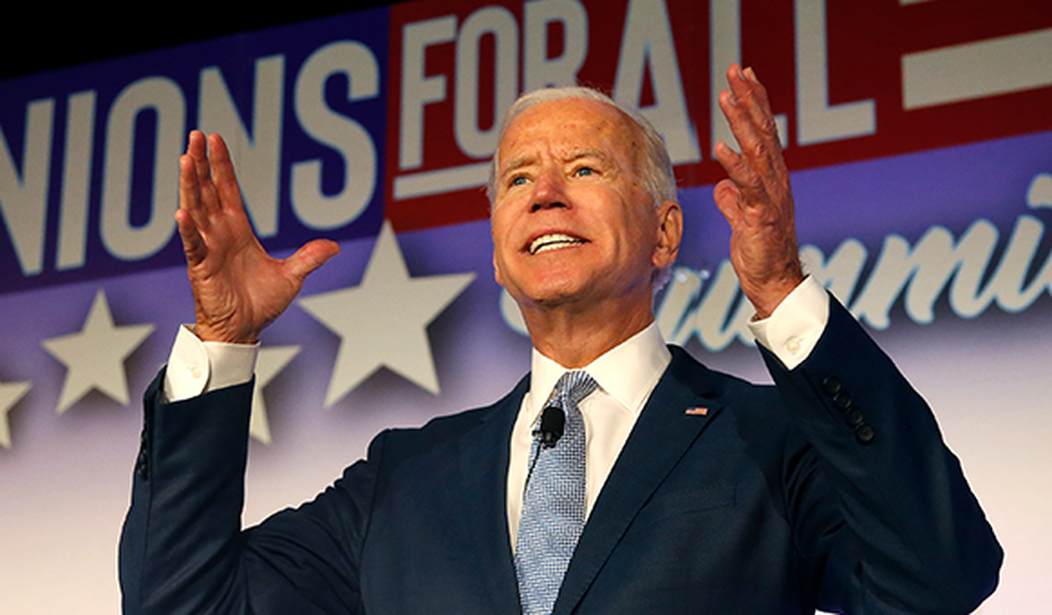The opinions expressed in guest op-eds are those of the writer and do not necessarily represent the views of RedState.com.
Big Labor and its acolytes have been trumpeting a recent Gallup poll suggesting widespread public support for organized labor.
According to the survey, about 71 percent of Americans expressed a favorable opinion of unions, up from 64 percent pre-pandemic and a low of 48 percent in 2009.
Even more revealing, they say, are figures from the U.S. Department of Labor (DOL) showing the overall number of wage and salary workers belonging to unions increased by 273,000 — 1.9 percent — to 14.3 million during 2022 over the previous year.
If true, it would be the best showing for unions since the 1960s.
Both notions are undercut, however, by other statistics from DOL revealing that union membership as a percentage of the country’s total workforce has actually never been less encouraging.
The agency reports:
“The 2022 unionization rate (10.1 percent) is the lowest on record. In 1983, the first year where comparable union data are available, the union membership rate was 20.1 percent and there were 17.7 million union workers.”
Can both trends be true? And more importantly, which is more noteworthy?
A Jan. 23 article on the Axios website, headlined “Why labor’s surging popularity isn’t translating to union membership,” relies on the views of labor-affiliated academics to explain the disparity.
“Critics say that Big Labor hasn’t adapted to the new realities of business in the modern era,” the authors assert, “nor have they given enough support to grassroots workers who are organizing on their own.”
In fact, the truth is much simpler: What people say often has little or no relation to how they act.
Yet another Gallup poll taken before the last election, for example, reported the Congressional approval rate had plummeted to dogcatcher status at 18 percent. But when the votes were finally counted, few incumbents were cast out of office.
As always, Americans make a distinction between their own scoundrel and those representing everyone else.
Similarly, respondents — depending on the survey’s methodology — might very well say they hold a favorable opinion of an entity that professes to fight for the rights and wages of underdog workers in their struggle against faceless corporate masters.
At the individual level, however, most workers are, by definition, satisfied with their own employment arrangement or they’d go elsewhere.
And like voters, they’re more forgiving of the scoundrels they work for than those rumored to be exploiting others elsewhere.
More to the point, the views of the 90 percent of Americans who aren’t unionized — and probably never have been — simply can’t be given as much weight on the subject as those who’ve had to make a decision about workplace representation in the real world.
For myriad reasons, workers in the private sector of the economy, who have traditionally had a choice about whether to affiliate with a union, have been declining that privilege in growing numbers for generations. But in the government workplace, many states made union membership and dues/fees a condition of employment.
On paper, at least, that changed in 2018, when the U.S. Supreme Court, in Janus v. AFSCME, affirmed that mandatory union participation in the public sector amounted to a violation of workers’ First Amendment rights to free speech and association.
According to LM-2 membership data for the nation’s four largest public-sector unions:
- The National Education Association (NEA) has lost 103,198 members in the past two years;
- American Federation of Teachers (AFT) is down by 11,059;
- The American Federation of State, County and Municipal Workers (AFSCME) has seen its membership slashed by 29,303; and,
- The Service Employees International Union (SEIU) has lost 16,655 over the same span.
The right to opt out has always existed under the U.S. Constitution, but unions continue to suppress information about Janus and fight tenaciously against every brave worker deciding to do what’s best for his or her family rather than Big Labor and the overwhelmingly leftist political agenda it supports with other people’s money.
At the end of the day, it’s relatively easy to tell a pollster you approve of unions when you don’t have one taking dues dollars out of every paycheck and giving them to candidates and causes you don’t approve of.
But the only opinions that truly matter are those of union members overwhelmingly and increasingly voting with their feet.
Jeff Rhodes is the vice president of news and information for the Freedom Foundation. www.FreedomFoundation.com












Join the conversation as a VIP Member